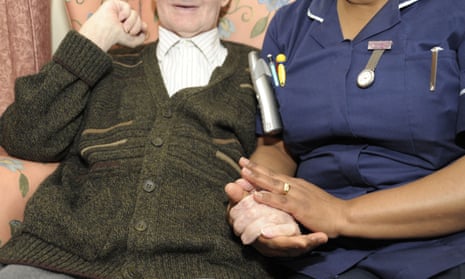The economic recovery from the Covid-driven recession will be hampered by a post-Brexit shortage of key workers including nursing assistants, senior care workers and dental nurses, the UK government’s migration advisers have warned.
In its annual report, the Migration Advisory Committee (Mac) said many of the roles with the highest vacancies in the UK, such as veterinary nurses and welders, require a significant level of training, which could cause a delay in filling jobs and “hinder future economic recovery”.
The migration experts warned the gap was unlikely to be filled by the government’s flagship post-Brexit skilled worker route due to the ongoing economic impact of the coronavirus pandemic and a renewed focus on domestic workers.
The Mac chair, Prof Brian Bell, said: “This is a time of great change for the UK immigration system, with the contribution that migrants can make becoming the focus rather than where they were born. Such major changes are never easy, but there is no denying the significant impact of the ongoing pandemic.
“There will be continued economic disruption, with significantly higher unemployment predicted in the coming months. It is considerably more costly to recruit a worker from overseas and it seems less likely that foreign workers will want to move at this time.
“It is more important than ever that we monitor migration and keep the system under constant review.”
The Mac’s report said there would be limited use of the new skilled worker route, at least in the first half of 2021. Job vacancies have fallen substantially, and most forecasts predict significantly higher unemployment in the coming months, the advisers said.
Firms that are still recruiting are likely to receive more applications from the domestic workforce than has been the case in recent years when the labour market has been tight, the committee said.
In addition, the report said the immigration system was deliberately designed to make it considerably more costly to recruit a worker from overseas than to recruit from the domestic workforce, while at the same time it seems less likely that foreign workers will want to move countries until the pandemic is under clear control.
The end of free movement, at 11pm on 31 December, will mean that all non-Irish EU citizens arriving in the UK after the end of 2020 will be subject to the same immigration rules as those from outside the EU.
A Home Office spokesperson said: “People from around the world are already applying through our new points-based immigration, which welcomes people to the UK based on the skills they can provide, not where their passport comes from.
“This new fairer, firmer, skills-led system ensures employers can recruit the skilled workers they need, whilst also encouraging employers to train and invest in the UK’s workforce.”
